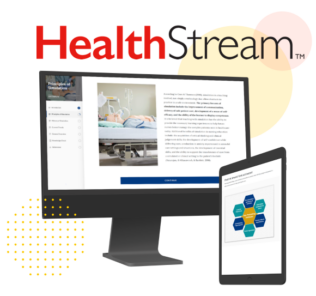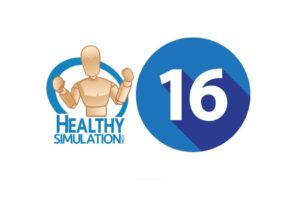How to Develop and Prepare a Healthcare Simulation Course
Frequently underestimated during the delivery of a healthcare simulation course is the amount of time and preparation required. Such necessary preparation is especially true for a multiple day course with numerous clinical simulation participants in attendance. This article by Erin Carn-Bennett, MSN, RN, will explore tips for those in the medical simulation field of work who plan, prepare, and deliver larger scale simulated learning courses. To make the most out of a healthcare simulation course, either as a participant or faculty member, preparation to a high and consistent standard should be constantly at the forefront of the mind for all team members involved in the process.
How to Start Developing the Plans
As with most things in regard to healthcare simulation, multiple iterations of plans in the lead up to the delivery of courses of any scale are critical to a successful outcome. A number of clinical simulation faculty team members will be required with many roles, especially with a large scale or multiple day clinical simulation course. The right person should be identified for each role based on their strengths to accomplish the requirements. If assigned the role to make the plan in the lead up to a healthcare simulation course, map out plans of jobs to be completed many weeks ahead. As a general rule, the preparation of plans should start sooner than anticipated. Ideally, one clinical simulation team member is the lead administrative voice and contact for all clinical simulation course-related inquiries.
Sponsored Content:
Compare Calendars with Other Stakeholders
Consideration of calendars of clinical simulation faculty members should be prioritized for large sized clinical simulation courses around one to two years out. This consideration should include faculty members’ clinical rosters, planned leave, and conference attendance planned. Also consider personal holidays, public and school holidays. Attendance at the clinical simulation course may be impacted by school holidays, for example, due to increased childcare pressures on participants who are parents. Participant sign-up may also be impacted in the weeks either side of Christmas and New Year. Calendar preparation time with key team players of faculty is essential. In some situations, there may be a requirement to diversify faculty to include national or international guests outside of the organization hosting the clinical simulation course.
Prep Course Material for Participants
There should be adequate time allowed for some allocated or chosen faculty members to review any course materials related to future courses. Edit slide decks with enough time prior to the clinical simulation course’s start time. If slide decks are provided in printed format for participants alongside other course material, allow enough time for this to be completed prior to the course starts. Assign faculty roles for clinical simulation scenarios and didactic speaker roles in a timely fashion so that faculty can review the course material that is relevant to them.
Sponsored Content:
Provide for Course Comforts to Ensure Satisfaction
Contact the participants early for dietary requests if the healthcare simulation course is catered. Ensure to use a provider who can take on a variety of participant requests. The person assigned to identify the personal touch for the conference can be stressful, so ensure that the correct team member skilled in this area takes on this responsibility.
Expect the unexpected to happen in a course and adapt as events occur. For example, participants may not be able to attend due to unexpected sickness of themselves or a family member. Offer alternatives as relevant to the individual. Alternatives may include a video conference option for suitable parts of the course or an offer to transfer to the next scheduled course instead.
How to Gather and Use Course Feedback
Consider the feedback process from the healthcare simulation course, as this is essential information that may alter the trajectory of the healthcare simulation course. For a multiple-day clinical simulation course, gathering feedback from each day can be incredibly helpful for faculty members to identify the positive aspects and areas for improvement. Allow time in the schedule for faculty to review feedback at the end of each day of the course. Use the feedback to make relevant alterations, when possible, to meet the educational needs of participants. Ensure that feedback is anonymous and encourage honesty. Collate the data into usable data to be shared among faculty and stored for future reference.
View the HealthySimulation.com LEARN CE/CME Platform Webinar Getting Started with Hosting Professional Development at Your Clinical Simulation Center to learn more!
Technology Identification: Key to Long-term Improvement
Allowance for time to test all clinical simulation technology equipment pre-course is vital. Ensure that all required equipment is present in the location of the healthcare simulation course, ideally a day before the course. Make lists of equipment required for all clinical simulation scenarios and prepare for any relevant moulage. Don’t forget to test the AV, desktop, laptop, and other required technology for the healthcare simulation course.
Ensure Easy Access to Course Location
The planning team will need access to the course location early, especially if the course is conducted outside of the home base of the healthcare simulation program. Access to the site for the team is beneficial prior to a clinical simulation course. If able to gain access, this can ensure that all setup can be done with plenty of spare and troubleshooting time. Just as with preparing a clinical simulation, the ability to pilot test or pre-test the format and equipment will mean less stress on the faculty on the day of the course. Nothing is worse than a significant technology issue on the day of a clinical simulation course!
Identify and Maintain Clear Roles
As with most parts that relate to teamwork, effective communication and role clarity will ensure a smooth clinical simulation course. Ensure faculty members have clear roles in the clinical simulation course. Be sure that faculty are aware of any specific guidance or expectations for them when they are a faculty member on any clinical simulation courses in the organization hosting. Clear roles will also allow faculty to know when and where attendance and participation are expected.
Delivery of a healthcare simulation course can be a vast effort of coordination, teamwork, administration, and preparation. In this article, there have been simple considerations for healthcare simulation professionals to translate into practice when involved in the delivery of a large scale clinical simulation course. Although an extraordinary amount of work can be involved, clinical simulation courses have the ability to change the lives of participants and shift mindsets to not only deliver a high standard of clinical simulation but also improve care delivered at the bedside.
Learn More About How to Develop A Successful Simulation Course!
Erin Carn-Bennett is a Simulation Nurse Educator for the Douglas Starship Simulation Programme in Auckland, New Zealand. Carn-Bennett has her Masters of Nursing and has an extensive nursing career within pediatric emergency and also nursing management. She is passionate about debriefing and all things simulation. Carn-Bennett is a member of the IPSS board of directors. Carn-Bennett is the lead host of the podcast Sim Nurse NZ.
Sponsored Content:


















